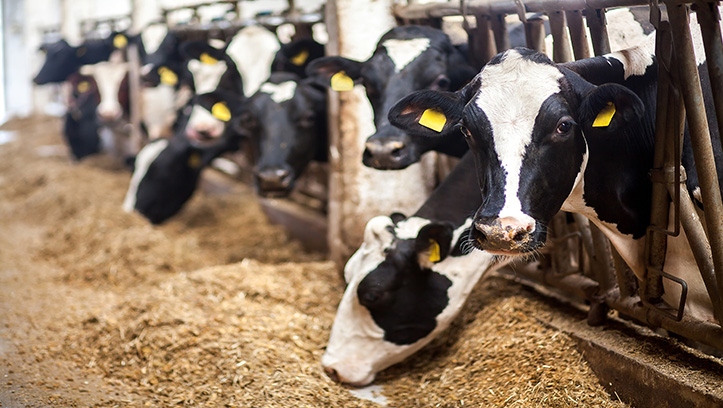Dairy farmers can capitalise on cutting carbon on their farms, creating a win for the environment and a farm’s bottom line.
Mole Valley Farmers’ head of nutrition, Dr Chris Bartram, said small changes could significantly benefit a dairy business’s profitability and is something every farmer should be looking at.
However, he suggested farmers seek expert advice to ensure any changes would have a positive impact on the farm and overall emissions.
He said: “Farmers must add sustainability to the traditional measures of productivity and profitability to get the most from their enterprise. There are many ways producers can help reduce emissions on their farms, and they are unlikely to mean significant investments or changes.
“It is important that farmers pursue the correct advice and adopt a ‘what if, step by step, approach to evaluating the various opportunities.
Dr Bartram suggested three initial feed-related areas to consider:
- Feed material sourcing: the removal of soy products (soya, protected soya and soya hulls) will require careful adjustments to the diet to maintain the required yield of fat and protein without incurring additional cost, particularly when feeding the high-yielding cow;
- Feed efficiency: improving feed efficiency on most farms will require a detailed look at concentrate feed allocation to various groups of animals or an increase in milk output. Heifer rearing will also be important as part of the overall approach; and
- Protein efficiency: initial analysis indicates that it will be beneficial to feed no more than a 14% protein concentrate at grass. The use of lower protein forages to balance high protein fresh grass may also be worth considering. Feeding for a higher milk protein yield will also be important.
Dr Bartram added: “When helping formulate rations, we use a unique ration program that allows farmers to see how different feeds influence margins and production. It now also includes an environment related section including diet carbon footprint, protein efficiency and methane output. This will help farmers to understand the overall impact of using certain feeds on the farm carbon footprint.
“We have also developed a dedicated Climate Positive Impact feed range formulated with no soy or palm products and specified with a low carbon footprint. This will be an easy win for producers looking to cut emissions quickly.”


